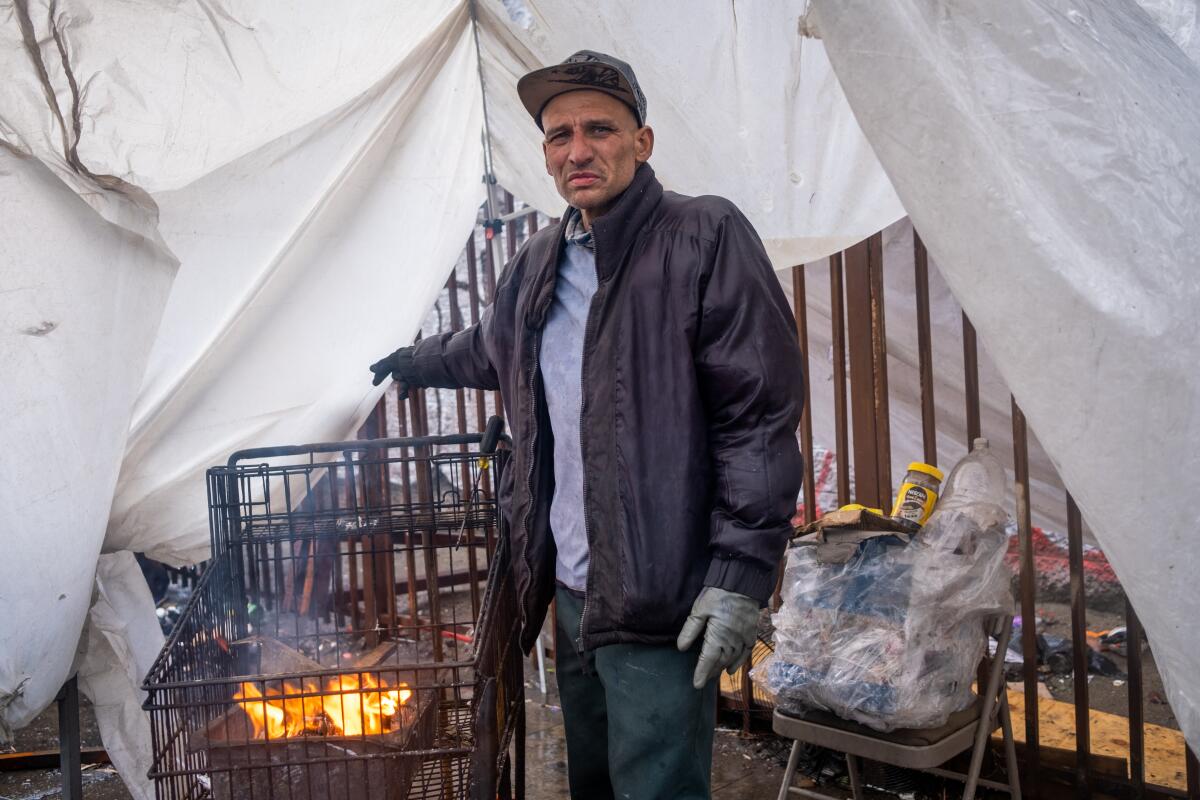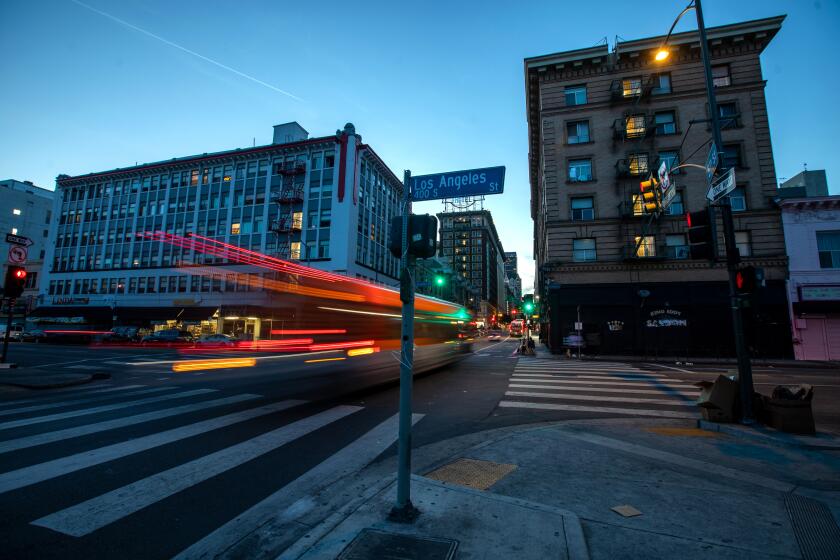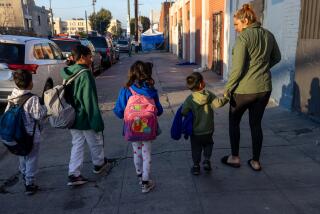$750 a month, no questions asked, improved the lives of homeless people

- Share via
If 100 homeless people were given $750 per month for a year, no questions asked, what would they spend it on?
That question was at the core of a controlled study conducted by a San Francisco-based nonprofit and the USC Suzanne Dworak-Peck School of Social Work.
The results were so promising that the researchers decided to publish results after only six months. The answer: food, 36.6%; housing, 19.5%; transportation, 12.7%; clothing, 11.5%; and healthcare, 6.2%, leaving only 13.6% uncategorized.
Those who got the stipend were less likely to be unsheltered after six months and able to meet more of their basic needs than a control group that got no money, and half as likely as the control group to have an episode of being unsheltered.
“I felt there was enough interest and the initial findings were compelling enough that it was important to get those results out,” said Benjamin Henwood, director of the Center for Homelessness, Housing and Health Equity Research at the Dworak-Peck School, who led the study.
“It may not be earth-shattering that providing money is going to help meet basic needs, but I do think it dispels this myth that people will use money for illicit purposes,” Henwood said. “We weren’t finding that in the study.”
About 2% of the total went to alcohol, cigarettes and drug expenses — the largest portion of which was cigarettes, Henwood said.
The participants submit monthly reports on their spending and are surveyed in more detail quarterly.
A Times investigation has found that many of the AIDS Healthcare Foundation’s more than 1,300 residents live in squalid conditions, with dozens under the threat of eviction.
A follow-up report will be published after participants have received the funds for a full year. But Henwood said the main findings were robust enough that they were unlikely to change.
The study arose from Miracle Messages, a San Francisco-based nonprofit that sends volunteers to the streets and shelters to befriend homeless people and try to make connections with the loved ones who had lost contact with them. Next founder and chief executive Kevin F. Adler started Miracle Friends, matching homeless people to volunteer phone buddies for weekly calls.
That evolved into Miracle Money when volunteers began asking Adler whether it was OK to give their buddies a few dollars.
“You asked me to be a friend to this person, but they don’t know what they’re going to eat tonight,” Adler said they would tell him.
Adler didn’t think the volunteers should hand out their own money. But the idea of cash support appealed to him.
After a pilot showed promise, Adler got a grant to expand to Los Angeles. He hired two recruiters to canvass homeless shelters. They enlisted more than 200 clients who met the criteria of being at least 18 years old and homeless and expressed interest in having a phone buddy.
Rather than just give money away, Adler hoped to document its effect. He teamed up with Henwood, who devised the controlled study. The participants were divided randomly into two groups. One group of 103 received stipends. The others were told they were on a waiting list.
After six months, only 12% of those who received funds reported being unsheltered at any time in the prior month, a dramatic decrease from 30% at the outset. Those on the waiting list also reported fewer unsheltered episodes, but by a much smaller margin, from 28% to 23%.
The cash recipients also said they were better able to meet their basic needs. On a scale of 1 (completely) to 5 (not at all), they dropped from about 3.75 on average to just over 3.25. The control group did not budge from 3.75.
Among those receiving the funds, some found permanent housing, even though the money fell far below average rents in the area, Henwood said.
“It seems like it’s opening up possibilities in different ways,” he said. “They might have a friend or relative that may not be willing to support them completely, but if they have something to contribute that opens up a room.”
In other cases, the money created opportunities, even for people who remained unsheltered.
“I spent a lot of the money on food on the go,” one participant told the researchers. “Simple, cheap things like bean and cheese burritos. I eat on the run while I bike/work for DoorDash. I also bought a membership to REI, so I could get my bike fixed for free.”
“It’s not a single path forward,” Henwood said. “It’s a lot of resourcefulness and creativity.”
More to Read
Sign up for This Evening's Big Stories
Catch up on the day with the 7 biggest L.A. Times stories in your inbox every weekday evening.
You may occasionally receive promotional content from the Los Angeles Times.












